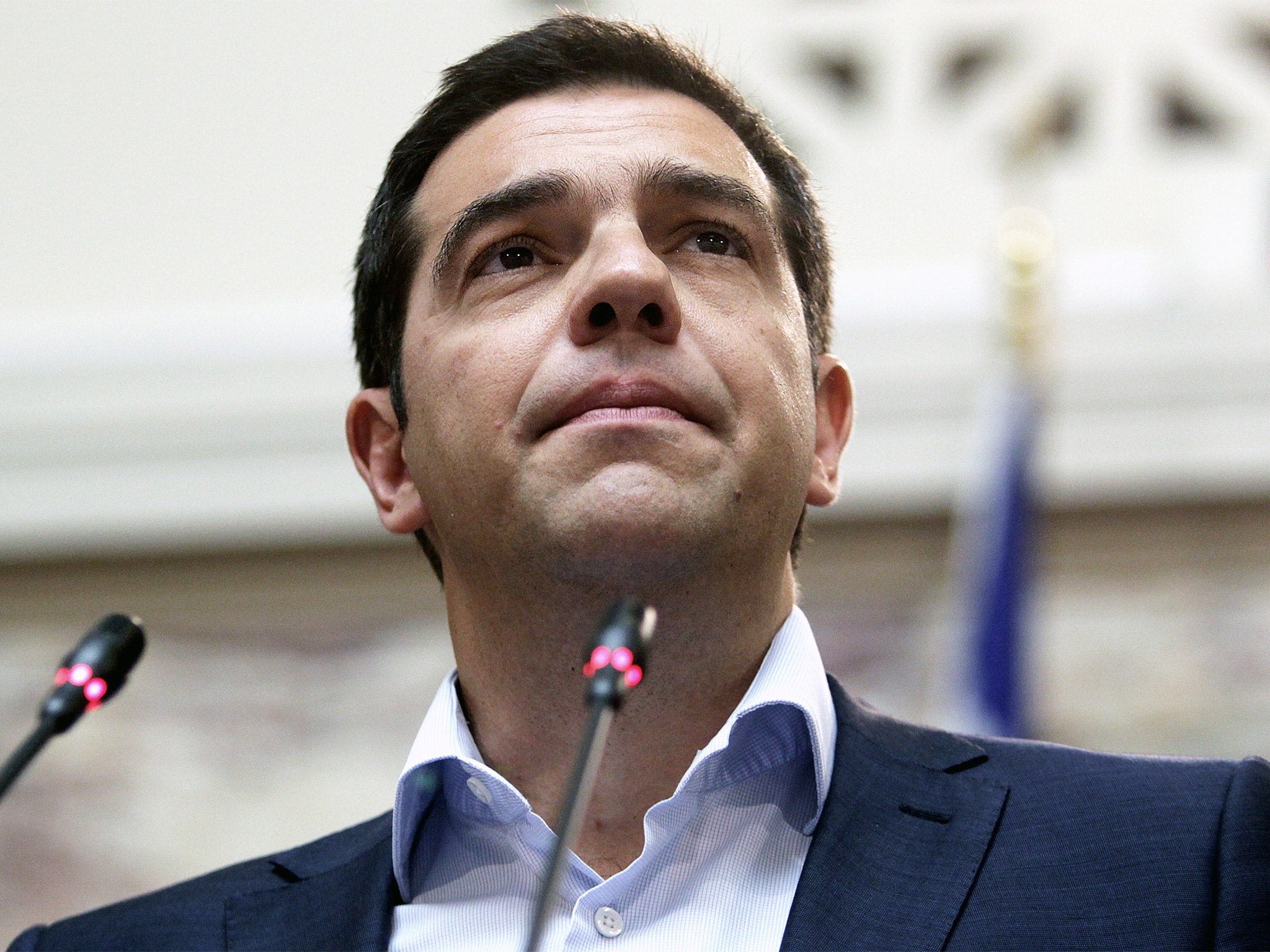If Greece can wreck it, how strong was euro in the first place?
Leaving the euro would be a much better option for Greece. But politics points in one direction, economics in another

Your support helps us to tell the story
From reproductive rights to climate change to Big Tech, The Independent is on the ground when the story is developing. Whether it's investigating the financials of Elon Musk's pro-Trump PAC or producing our latest documentary, 'The A Word', which shines a light on the American women fighting for reproductive rights, we know how important it is to parse out the facts from the messaging.
At such a critical moment in US history, we need reporters on the ground. Your donation allows us to keep sending journalists to speak to both sides of the story.
The Independent is trusted by Americans across the entire political spectrum. And unlike many other quality news outlets, we choose not to lock Americans out of our reporting and analysis with paywalls. We believe quality journalism should be available to everyone, paid for by those who can afford it.
Your support makes all the difference.When economics and politics clash, economics invariably wins. But the battle can take years and during that time, not only does deep economic misery result, but the political aims are lost in the process. And so it is with Greece.
Alexis Tsipras, the Prime Minister, accuses the International Monetary Fund of “criminal” responsibility for what has happened to his country. He says the European Central Bank has imposed what amounts to “financial asphyxiation”. In using these terms, he is reflecting Greek public opinion now, but also the attitude of many other electorates towards IMF programmes and central bank orthodoxy.
Those of us who are old enough can recall the popular hostility to the IMF when Britain was bailed out by the Fund in 1976; and one of the reasons why it suited politicians to hand over control of short-term interest rates to central banks was because increasing interest rates was politically unpopular.

So it is easy to dismiss these attacks as a populist rant. Those at the IMF are technicians following rules, not criminals, and the ECB has gone to the limits of its mandate in supporting the Greek banking system. Easy, but wrong. Strip out the inflammatory language and it is true that the successive bailouts of Greece by the IMF, ECB and European Commission have not only failed, but been bound to fail.
The IMF has a lot of experience of sovereign bailouts. These vary depending on the situation of the country, but typically they have several elements. Some debt is written off, often as much as half of it. The country devalues its currency, usually by 20-25 per cent. It brings in a reform programme, sorting out its internal finances. And it receives new loans to tide it over until the reforms take effect. In the case of Greece, the first two elements were not there. Some private debts were written down (the so-called “haircut” imposed on bond holders) but the much larger public debts were not touched. Nor was there a devaluation, for Greece was in the eurozone. So all the burden was placed on the reform programme, which imposed deep austerity on the people, in return for which the country got some short-term loans.
Thus the IMF’s tried and trusted economic solution could not be applied because of politics. Sovereign debt in Europe could not be written down because to do so would have undermined the eurozone system; and Greece could not devalue. The result was a fudge, which we at this newspaper, along with many others, said at the time could not work.

As it turned out, the catastrophe that struck Greece was even worse than many of us feared: the economy shrank by a quarter. This is at the outer limits of what any developed economy has experienced since the Second World War, and akin only to the sort of declines that struck the Eastern European countries when they abandoned communism. The difference there is that Eastern Europe recovered quite swiftly and then leaped ahead, whereas there is no sight of recovery in Greece. Politics beat economics, but at terrible cost for the Greek people.
So what happens next? There will be a huge political commotion, and huge pressure for Greece to carry on with yet deeper austerity. The conventional view is that it would be better for the country to submit to this pressure and that it would be a catastrophe were it to default and/or leave the eurozone. That is politics, and there are plenty of politicians, officials, central bankers, academics and commentators who will press this case.
But to accept this is to accept that Greece will spend the next 42 years paying back an average of €10bn a year to its creditors. That cannot be right.
It follows that Greece’s debts will be written down, the only question being whether this is done in an orderly or chaotic way. It does not necessarily follow that Greece will leave the euro. While everyone accepts it was a mistake to join, there is popular support in Greece for retaining it. But if it keeps the euro, it will have to squeeze down costs and wages even further and the suspicion that it might nevertheless eventually leave would restrict inward investment. If it were to leave, set up a parallel currency and devalue, there would be a flood of inward investment and a boom in the tourist industry. (Tourism accounts for roughly 15 per cent of Greek GDP.)
In economic terms, leaving the euro would be a much better option in the long term. Note how the UK devalued by about 20 per cent when the recession struck and we have by now had a stronger recovery than even Germany – through it did take us a while to get going. But in the short term it would undoubtedly be disruptive because there is no mechanism for a country to leave the euro. It would also be unpopular within Greece and the government might find it hard to survive. That is why even Yanis Varoufakis, the flamboyant Finance Minister, does not want that outcome, though he too acknowledges it was a mistake to join. Again, politics points in one direction, economics in another.
It is now very evident that the goal of political union within Europe has been lost. Orthodoxy has for the time being kept Greece in the eurozone but its purpose was always to bind Europe more closely together. What it has done is to drive European economies further apart, and to whip up old political animosities. The claim that a Grexit would be a catastrophe has been made by many normally sensible people, but it seems absurd to suggest that a country accounting for just 2 per cent of eurozone GDP could wreck the entire enterprise. If it could, then that enterprise is not very robust. We will discover more about how secure the eurozone really is in the coming weeks.
Join our commenting forum
Join thought-provoking conversations, follow other Independent readers and see their replies
Comments